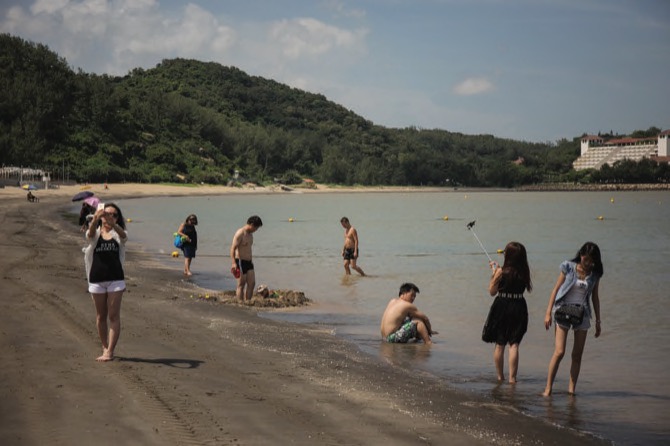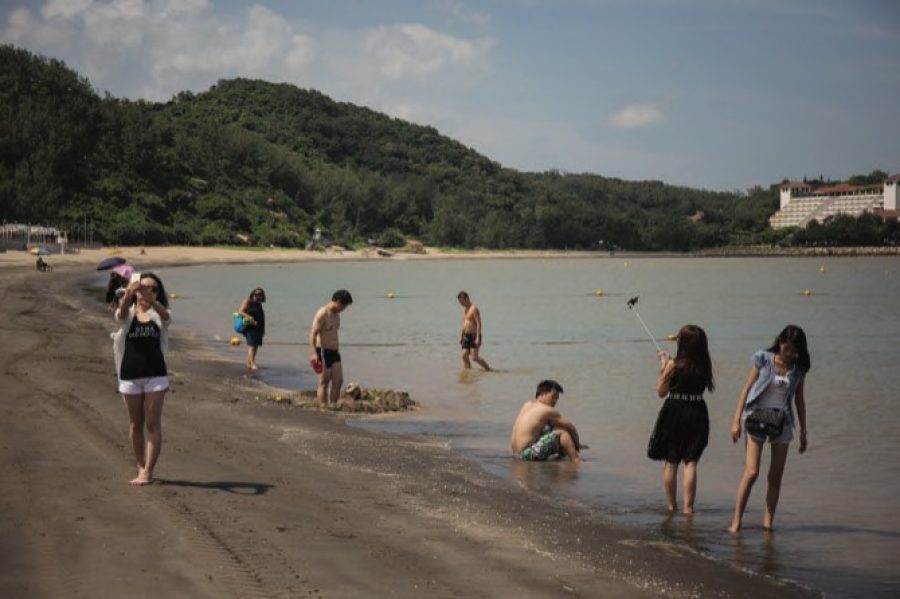Following reports in recent days about Cholera bacteria detected at Cheoc Van Beach, some residents have expressed concerns, with at least one drawing a connection between the presence of the bacteria and the poor treatment of sewage in Macau.
In response to the finding of Cholera, the government raised the red flag at the beach, signalling that marine activities should be avoided.
The Health Bureau has noted that the latest strain of Cholera was earlier recorded in Macau in 1998. However, the bacteria have been found several times in Macau waters since.
António Trindade, CEO of local energy and environment firm CESL Asia, suspects a connection between the latest Cholera discovery and the sewage problem.
“Over 80 percent of the sewage water that is produced in Macau is discharged, untreated, to coastal waters,” he told Macau Daily Times in an interview earlier this year.
Commenting on the latest finding, Trindade on Thursday suggested that the government cross- reference the bacteria found at Cheoc Van with the sewage discharge.
“They have ways to compare […] these germs, with the rubbish collected or sewage treated by the several plants across the city. Then they will know where these germs are from.”
On the other hand, even if the wastewater gets treated before disposal, it may not be totally safe. Trindade said Macau is using a safety standard from 1992 to handle wastewater today.
“This is a third-world situation,” Trindade added. “Macau is receiving tens of millions of tourists each year, and we have one of the richest economies in the world; we can’t take these risks.”
He recommends more be done to conserve the environment.
Meanwhile, a group of environmentalists is inviting members of the public to clean the coast of Coloane on Saturday. A convener told the Macau Daily Times that they are aware of the Cholera discovery.
“We will remind participants not to touch the sea water as we are aware of the finding,” the environmentalist said. “We are not drinking the water, so I believe we will be safe.”
According to the Center for Disease Control and Prevention (CDC) of the United States, a person can get cholera by drinking water or eating food contaminated with the cholera bacterium.
In an epidemic, the source of the contamination is usually the faeces of an infected person who contaminates water or food. The disease can spread rapidly in areas with inadequate treatment of sewage and drinking water. The disease is not likely to spread directly from one person to another, therefore, casual contact with an infected person is not considered a serious risk.
Cholera infection is often mild or without symptoms, but approximately 10% of infected persons will have severe reaction characterised by profuse watery diarrhoea, vomiting, and leg cramps. In these people, rapid loss of body fluids leads to dehydration and shock. Without treatment, death can occur within hours.
It can take anywhere from a few hours to 5 days for symptoms to appear after infection. Symptoms typically appear in 2-3 days.






